INCLUSIVITY, DIVERSITY, EQUITY, & ACCESSIBILITY:
IDEA@ TiER1
We are on an ongoing organizational journey to better center inclusion, diversity, equity, and accessibility in our values and company culture—we call it the IDEA Journey. To realize our fullest potential, we must bravely participate in opportunities to become aware of our bias, learn/unlearn mindsets and behaviors, engage in meaningful conversations about things we may shy away from in fear or discomfort, and explore ways to build on cultural competence through lived experiences.
Ready to start the journey to boldly create experiences that address and deepen inclusive practices, recognize the unique diversity of your people, and create equitable workforces? Keep scrolling to learn more.
WHY talk ABOUT INCLUSIVITY, DIVERSITY, EQUITY, & ACCESSIBILITY?
Six reasons we all need to care about inequity in the workplace:

Job seekers AND employees report that a diverse workforce is an important factor.

Employees who perceive negative bias from a company’s leaders don’t refer peers.

Black professionals report they must work harder than white peers in order to advance.

Companies diverse in gender are 25% more likely to financially outperform their peers.

Companies with more diverse management have 19% higher revenue due to innovation.

Companies diverse in ethnicity are 36% more likely to financially outperform their peers.
HOW WE DEFINE idea AT OUR ORGANIZATION
INCLUSIVITY is a mindset.
![]()
Organizational practices and policies in place are what guide us to include individuals who may otherwise be excluded or marginalized. Someone with an inclusive mindset behaves in a way that embraces and welcomes the diversity of others, which allows people to bring their whole selves to work and directly impacts performance.
Inclusion requires ongoing awareness of potential bias and blind spots (systemic and individually) and how to not exclude someone; to be inclusive requires that a willingness to choose continuous learning and growth every day.
DIVERSITY is a fact of personal identity.
![]()
Diversity is more than things you can see physically. When we say diversity, this does not solely apply to core characteristics such as age, gender, race, etc., rather this includes all of our unique characteristics.
It is the ways we are all similar and different, including the core (visible) and invisible characteristics. When we embrace, recognize, and value diversity, we are also recognizing this at the individual level. There is no room here for discrimination.
EQUITY recognizes gaps and inequities to close.
![]() We recognize that some individuals or groups are disadvantaged due to an unequal starting place and therefore are underrepresented or marginalized within a field, industry, workplace, or community. This requires us to examine systems both internal and external to find ways to provide opportunities to reduce barriers to entry and provide support to help level the playing field. We are using business as a source for good.
We recognize that some individuals or groups are disadvantaged due to an unequal starting place and therefore are underrepresented or marginalized within a field, industry, workplace, or community. This requires us to examine systems both internal and external to find ways to provide opportunities to reduce barriers to entry and provide support to help level the playing field. We are using business as a source for good.
This is an ongoing journey for every company that requires intention and keeping the pulse on where inequities may exist so that we can support individuals who are marginalized continue to develop and thrive.
ACCESSIBILITY is about access and support for all.
![]() Everyone should have the ability to access environments, events, services, experiences with or without disability therefore we must focus on proactive design and care versus reactive fixes.
Everyone should have the ability to access environments, events, services, experiences with or without disability therefore we must focus on proactive design and care versus reactive fixes.
Through seeking accessibility for all, it allows us to drive actionable intention to how we acknowledge, create, support, and destigmatize disability, as well as how to accommodate people with a range of disabilities.
OUR IDEA commitments
At TiER1 Performance, our mission is to improve organizations through the performance of people to build a better world. That requires us to be deliberate about inclusion, diversity, equity, and accessibility as a means to deepen our values. Our organization continues to evolve and grow because we courageously step into new challenges. We do not shy away from what’s hard. We listen. We empathize. We seek to understand. Working to place diversity, equity, and accessibility at the center of our practices creates important moments for listening, empathy, and action. We believe our culture makes it possible to explore difficult topics and lean into uncomfortable conversations.
Creating an inclusive environment is important to us. We are proud of our purpose-driven culture, which is built on the belief that organizations exist to serve people, not the other way around.
We commit to continuously assess and evolve our systems, initiatives, and investments at TiER1 to foster a more inclusive, diverse, and equitable environment.
![]() Our initial focus areas include:
Our initial focus areas include:
- Making systemic changes
- Evolving our recruiting process
- Evaluating and evolving our employee lifecycle in how we hire, engage, and retain our employees
- Incorporating Diversity, Equity & Inclusion into our employee development programs (i.e. Choose Growth)
We commit to ensuring our social impact supports the education and development of marginalized communities, including the promotion and growth of emerging leaders who are Black, Indigenous, People of Color, and LGBTQ+.
![]() Our initial focus areas include:
Our initial focus areas include:
- Ensuring our commitment to reduce the stigma of mental illness, allowing individuals to show up as their authentic selves – this includes an intentional focus on awareness, education, and support of people whom hold marginalized identities.
- Investing in the talent pipeline for BIPOC students to help increase the number of BIPOC professionals in performance design and technology fields.
- Ensuring our social impact projects, investments, and community partnerships support local social service nonprofits aligned with this commitment.
We commit to the continued support of people from diverse backgrounds to empower them to realize their full potential.
![]() Our initial focus areas include:
Our initial focus areas include:
- Implementing structures for community through Employee Resource Groups and Leader Hosted Roundtable Discussions.
- Developing internal and external communication platforms for meaningful conversation, sharing, and education.
- Open, meaningful conversations about race and various dimensions of diversity.
We commit to advancing racial equity in Indianapolis and neighboring communities.
- Organizations must be committed to meaningful action and impact through the ongoing commitment of resources.
- They must have measurable goals to be held accountable to the African American community and to each other.
- Through the support of and for African Americans, participating businesses can help create a more racially equitable Central Indiana.
HOW DO WE HAVE meaningful CONVERSATIONS ABOUT RACE & RACISM IN THE WORKPLACE?
We believe organizations can have meaningful conversations on the topics of race and racism by utilizing an insight sprint process to uncover the unique challenges, biases, perspectives, and conditions to apply the insights surfaced to their flow of work. TiER1 leveraged this process to answer the challenge statement of “How do we have meaningful conversations about race and racism within our workplace?”
The insight sprint process is a subset of design thinking methodology, which required us to research (including interviews with internal and external participants, focus groups, surveys and more) to gather quantitative and qualitative data. As a result of this process, we determined our current and future state of conversational framework, varying perspectives and personas, and a path forward to drive more inclusive practices within the organization. We humbly offer this insight sprint to our clients to help them gather more insight and take meaningful action in a challenge space related to Diversity, Equity and Inclusion—all through a facilitated process, employee reflection surveys, race-related workplace research, the conversational framework, and more.

OUR IDEA JOURNEY TO inclusive CONVERSATIONS
Our starting point for the IDEA Journey was to facilitate meaningful conversations about race and racism. The journey began with self-reflection, access to diverse curated resources, assignments, and ways to build more awareness.
At TiER1 Performance, we are Performance Experience Designers with expertise in learning, leadership, change management, culture and organizational design. We design cultural and learning experiences for our TiER1ers, and we do the same for our clients! We leveraged our Performance Experience Design process to design the learner experience and based principles of this journey in Emotional Intelligence.
Through the IDEA Journey to Inclusive Conversations, we seek to deepen our knowledge, adjust our systems, and foster a sense of belonging for TiER1ers. As we continually evolve and learn, we are sharing our commitments and lessons learned along the journey as they progress.
A SNAPSHOT VIEW OF THE journey

Self-Assessment of
Implicit Bias
Employees gain awareness of implicit biases which they may hold. This provides employees with their individual context for where their journey starts and where they’d like to learn, develop, and grow.
Discover & Learn
Employees take advantage of reflection activities and curated content to get started on their journey, and they own their learning through additional research and discovery.
Roundtable Conversations
Employees arrive at this point in the journey feeling more prepared and safe to actively participate in an IDEA roundtable discussion. After the conversation, they note any ahas, emotions, and/or triggers they may experience.
Lived Experience
This is a list of potential lived cultural experiences provided to help employees safely explore other sides of their communities to gain perspective and awareness of other ways of living. These activities can be completed individually, with a partner or with family, and will prompt self-reflection.
OUR IDEA resources FOR THE JOURNEY
Race & Racism Insight Sprint Tool Kit
This toolkit provides guidance on ways to start identifying best practices, internal barriers and required conditions to have conversations related to Diversity and Inclusion through research, interviews, organizational surveys, and methods of synthesizing gathered information with a non-bias approach; with the case study of TiER1’s sprint process on how to have meaningful conversations about race and racism, as well as access to templates, tools, and research related to Diversity and Inclusion.
Implicit Association Test
The Implicit Association Test developed by Project Implicit measures attitudes and beliefs that people may not be willing or able to articulate they have. There are a wide variety of Implicit Association Tests available. Though the tests are for educational purposes and are not definitive, bringing blind spots into the light for examination is important, since implicit preferences feed into discrimination in networking, hiring, promotions, and other workplace decisions.
IDEA Coffee Talk
Our desire to foster a connected organization (and the ingenuity of one of our developers) fueled the creation of Coffee Talk, an application designed to match people for scheduled chats to bolster connections and build relationships; some of our largest clients use the application to keep their employees connected. As a part of our IDEA cultural practices, we launched IDEA Coffee Talk to connect TiER1ers who are actively participating in the work to continue the conversation. Once a TiER1er attends an IDEA Roundtable session, they can sign up to be matched with another TiER1er and potentially serve as an accountability partner if they find synergies.

Emotional Intelligence 2.0
One of the greatest things about leaning into emotional intelligence (EQ) is that, as a collective, it can lead to more inclusive practices within our projects and naturally help increase psychological safety within our work environment.
Cultural Humility
Part of the IDEA journey for our organization has been embracing cultural humility as a necessary tool for building an inclusive workforce. The Hogg Foundation for Mental Health has shared a great overview of this critical concept.
Disabilities & Inclusion
Coqual’s key findings for US and global trends illustrate that Experience designers have a unique opportunity to leverage the data and research to explore how to accommodate people with a range of disabilities.
Racial Trauma & White Fragility
This episode of the podcast On Being with Krista Tippett is on the topic of racial trauma and restorative anti-racism work between trauma therapist and author of My Grandmother’s Hands, Resmaa Menakem, and Robin DiAngelo, author of White Fragility.
Mental Health Inequities
This study, published by the Center for Health Policy, IU Richard M Fairbanks School of Public Health at IUPUI, highlights the inequities in access to and utilization of mental health services for Indiana residents, particularly within Black communities and those experiencing poverty.
SOME OF THE THINGS ON OUR mind
Webinar: Elevating Performance through Authentic, Inclusive Leadership
Experts discuss the complexities of diversity and how leaders can help foster a culture of belonging.
A Strengths-Based Approach to Building an Equitable Workplace
Insights from Breanna Jackson on unlocking the power within through a strengths-based approach to employee development.
Building a Culture of Belonging
Actionable leadership practices for prioritizing employee well-being, diversity, and recognition in the workplace.
Wired Differently: Being a Neurodivergent Leader
By recognizing and celebrating the strengths of neurodivergent individuals, we can build a more inclusive, compassionate, and successful workplace.
Webinar: Creating a Culture of Belonging
Experts share actionable steps leaders can take to foster inclusion and belonging.
Inclusive Leadership Practices to Cultivate Belonging at Work
When it comes to impacting others, how we work is just as important as the work we do.
READ MORE »





